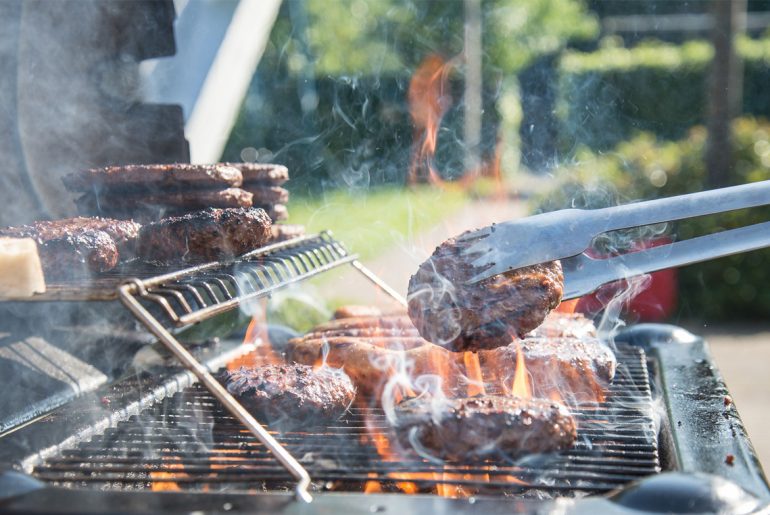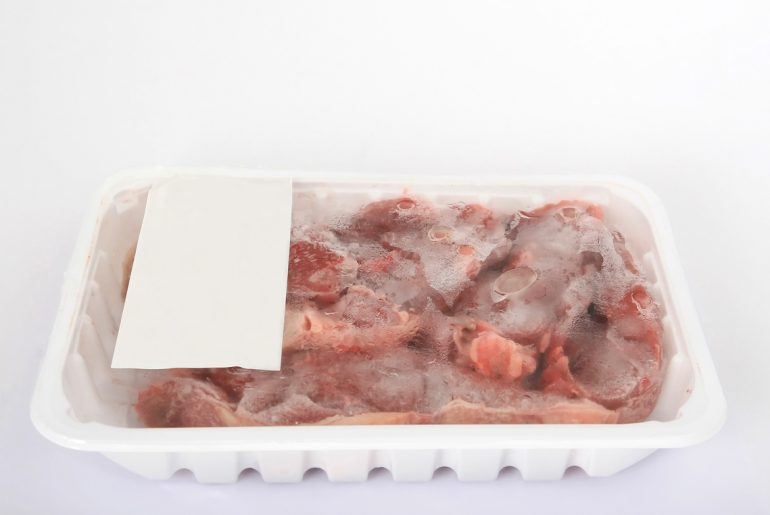For many Americans, the official kickoff to summer picnic and grilling season happens this weekend. With all of that food handling happening, it’s inevitable than many of us will end our fun afternoons with no-so-fun circumstances. An estimated 128,000 people nationwide will end up in the hospital with foodborne illnesses this year, but many of these can be prevented by properly cooking and storing foods when traveling and cooking out. The U.S. Department of Agriculture’s (USDA) Food Safety and Inspection Service (FSIS) recommends that you refresh your memory on food safety before diving into summer festivities. Grilling basics: Keep perishable foods at or below 40ºF. Food should never sit out longer than 2 hours. If weather is hot, knock this down to 60 minutes. Pack separate coolers for perishable items and other items like drinks, if people will be reaching in and out. This will ensure your meats or poultry stay cold,…
These 10 foods have more potassium than that boring banana
If you know just one thing about potassium, it’s probably that it’s found in bananas. Bananas are a portable, tasty source of potassium, but there other great foods that can help you reach your recommended daily intake, too. Potassium plays many important roles in the human body. You don’t hear as much about potassium as you do with say, vitamin C, fiber or even omega-3s, but 100,000 times every day, this electrolyte helps to trigger your heart to pump blood to the rest of of you body. It helps your muscles to move, your bones to stay strong and your nervous system to communicate. Low potassium intake has been linked with high blood pressure and kidney stones, according the National Institutes of Health. Less than two percent of people in the U.S. get the recommended 4,700 mg daily recommendation of potassium, according to The National Health and Nutrition Examination Survey (NHANES). Yes, that means a whopping 98 percent of…
Incredible facts about eggs you never knew
Whether they’re Benedict, baked, or hard-boiled, Americans sure love eggs. In fact, just last year, we ate 2.7 TRILLION of them, according to the Incredible Egg. But our favorite breakfast protein is hiding some fun facts. Did you know that most eggs are laid between 7 a.m. and 11 a.m.? Or why some eggs float and others sink? Read on to discover more egg-citing facts and learn why eggs are all they’re cracked up to be. america’s egg basket According to the American Egg Board, Iowa is the leading producer of eggs in the United States with more than 54,000 hens and 8,000 employees hard at work. Ohio, Indiana and Pennsylvania are the next top three producers. According to the Incredible Egg, across the country, 251 million eggs are laid each day. inspiring chefs’ hats According to The Culinary Institute of America the folds in a chef’s hat — officially called a toque — supposedly…
This is why you should never defrost food on the kitchen counter or microwave
We’ve all been there — the intention to cook a nice chicken breast for dinner only to realize we’ve forgotten to defrost. Rather than looking for an alternative, we attempt to speed up the process by tossing the meat in the microwave instead. So what’s the big deal? Well, defrosting at those warm temperatures puts you at serious risk of eating dangerous levels of bacteria. Yikes! According to Professor Costa Stathopoulos from Abertay University, defrosting meat in the microwave “is really not the best of techniques.” Stathopoulos appeared on BBC Two’s Inside the Factory earlier this month and showed the difference between turkey meat that had been defrosted in the fridge versus turkey meat defrosted on the counter. The latter had twice the amount of harmful bacteria, including ecoli microorganisms. And that’s not even considering the warm temps the meat reaches in the microwave. Cold temperatures slow down bacterial growth, so your chance of an upset stomach…
How to safely roast a turkey this Thanksgiving
Thanksgiving hosts have a lot to worry about when preparing the year’s most anticipated feast; lumpy gravy, broken wine corks, unexpected dinner guests. But while there are plenty of things that can go wrong, there is only one thing that can truly turn the holiday merriment into misery. Food poisoning. According to the Center for Disease Control and Prevention (CDC), each year, about 48 million people will get sick from a foodborne illness. While summer’s picnics and camps are prime time for foodborne illness, these diseases also spike sharply during the holiday season. Marianne H. Gravely, Senior Technical Information Specialist of the Food Safety Education Staff at the USDA, gives us some tips on making sure you prepare a Thanksgiving feast that’s memorable — for all the right reasons. Storing a turkey before Thanksgiving Start by cleaning out your refrigerator. Whether you’re making all of the dishes yourself, or guests are bringing some to your house, all this food needs a place to…





